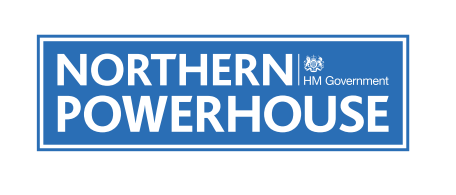Northern Powerhouse Schools Strategy published: KEY RECOMMENDATIONS
The long-awaited independent review into education in the Northern Powerhouse was published yesterday, outlining a series of recommendations.
Sir Nick Weller, CEO and Executive Principal of Dixons Academies, was tasked with analysing data on underperformance in the North and possible underlying factors.
The Government will invest £70m over three and a half years to improve capacity and raise standards in Northern Powerhouse schools.

Below is a summary of the key recommendations in Sir Nick’s review. Our response to these is also available to read here.
BUILDING TEACHING AND LEADERSHIP CAPACITY
The DfE should improve its teaching supply model to take better account of local need and should also pilot a new Teach North scheme to attract and retain talented newly-qualified teachers in disadvantaged schools in the North East. Enhancing existing and new leadership initiatives in the North (particularly in ‘cold spots’) should also be a top priority for the DfE.
Northern Powerhouse cities should take the lead on regional marketing initiatives to attract teachers to live and work in the North; funding should be allocated to support these initiatives.
SCHOOL IMPROVEMENT CAPACITY
In addition to an outstanding or good judgement, standalone conversion to academy status should be restricted to schools with strong evidence of progress over three years.
The report suggests that national consideration should be given to RSC resourcing in areas where there are endemic issues, including issues with previous decision-making. Northern local authorities are encouraged to facilitate the growth of strong and effective MATs in their area.
Funding to MAT CEOs from northern ‘cold spot’ areas to attend MAT CEO training should be given by the DfE, as well as for a mentoring scheme whereby successful MAT CEOs from across the country can share best practice with their northern counterparts.
Sir Nick focuses on effective governance and suggests new academy trusts should review their governance arrangements, whilst the DfE should ensure that funded programmes to recruit governors address issues specific to northern schools.
NCTL should press ahead with plans to enable the best schools with good Ofsted judgements to apply to become Teaching Schools and NLEs as soon as possible.
RAISING STANDARDS AND CLOSING THE DISADVANTAGE GAP
DfE should commission more research into the disadvantage attainment gap and how to raise attainment of the most disadvantaged pupils. Sir Nick is also keen that the DfE should identify examples of best practice at all levels – from early years to secondary – and disseminate this to schools across the North.
CURRICULUM
Improving literacy and numeracy in primary schools should be a key priority and the report recommends that the EEF continues to key role in improving standards in these areas; both by scaling up the North East Literacy Campaign to other areas and through their Research Schools programme.
At secondary level, Sir Nick urges northern schools to revise their curriculum offer if they have not already done so; “We should ensure that the curriculum and qualifications we offer are of sufficiently high status to open up opportunities for our students”. He is particularly concerned about schools whose pupils are not filling all of their Progress 8 slots.
SYSTEM CONDITIONS
Sir Nick recommends that the DfE reform funding “to ensure schools with high concentrations of students with special educational needs are fairly funded” and to provide additional support and funding to local authorities to ensure that their Special School provision is sufficient to meet demand. The Department is also encouraged to look at changing admissions policies to encourage greater diversity in schools with high concentrations of mono-cultural disadvantage.